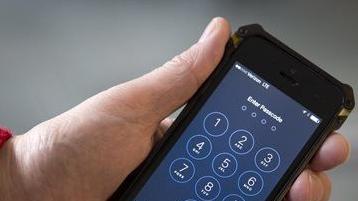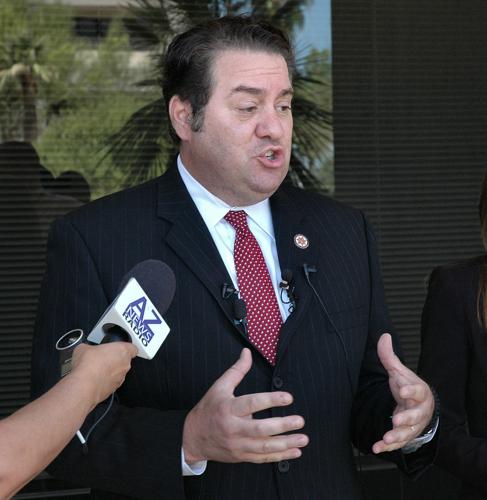PHOENIX — Public officials can’t hide evidence of their official activities through texts and social-media posts made from their personal cellphones, Attorney General Mark Brnovich has concluded.
In a formal legal opinion issued late Friday, Brnovich said there is a “duty” of those who conduct official business on their own devices to record them for preservation. Ditto, he said, of messages sent through social-media sites like Facebook and Twitter.
But Brnovich provides what could be an escape clause for elected officials and others seeking to hide what they do.
“If the electronic message is solely on a private electronic device or through a social media account that an agency has not established as a system for conducting government business, then ... the electronic message is not a public record,” he wrote. And Brnovich said a 2000 change to the law expanding it to cover electronic records includes only those on “agency-maintained system.”
“That’s wrong,” said attorney Dan Barr of the First Amendment Coalition. He said a 2007 Arizona Supreme Court ruling spells out that it is the content of the communication that determines whether something is a public record, not where it is stored or from what device it was sent.
Barr said he worries that public officials seeking to hide activity will use the wording of Brnovich’s opinion as a reason to refuse to disclose their communications.
“The mischief that will happen for somebody who doesn’t want to turn over records in the first place, they will seize upon the language ... and say, ‘Aha, here’s a reason I can withhold this. And the attorney general says so,’’ Barr said.
But Brnovich said his 11-page opinion should not be taken as an excuse or a road map for elected officials and other government employees as a way to conduct business outside public scrutiny. He said if they do use personal devices there still is an “affirmative duty to reasonably account for official activity.”
“This duty encompasses official activity engaged in through private devices or accounts,” the attorney general wrote. “In other words public officials cannot use private devices and accounts for the purpose of concealing official conduct,” he said.
Brnovich said that even with no law covering those texts and postings, public officials and public bodies have “independent obligations to record their work and otherwise maintain records.” What that means, he said, is that if some official activity does occur through a text on a personal phone or a Facebook or Twitter post, “It is the duty of the public official to record the activity.”
But with his opinion that these private devices and posting are not public records, Brnovich essentially makes that self-policing.
The opinion comes amid controversy — and an ongoing investigation by Brnovich’s office — over whether Pima County Supervisor Ally Miller has used private emails to conduct public business.
Jeanne Davis, who had been Miller’s chief of staff, said Miller communicated through personal email and her personal Facebook account.
“Often, Supervisor Miller didn’t want the county to know what her plans were so she used personal email and her personal devices to keep hidden,” said Davis who was fired by Miller in 2015.
Documents obtained by the Arizona Daily Star include a 2013 email to another former staffer.
“I realized we communicated by the pima county email,” she wrote. “And I am positive they are reading our emails.”
A 2014 document showed Miller was worried about county employees spying on her.
“We also can’t save things on cmputer (sic) at work or they will be ahead of us,” she wrote, saying “we have to be more secretive.”
Brnovich conceded his view of what is — and is not — a public record is based solely on his reading of existing Arizona law. He said no Arizona court has ever addressed texts on private phones or messages on non-government social media accounts.
But he said the “plain text” of the public-records statutes convinces him they were meant to apply solely to records on government-controlled systems.
“An agency does not have control of private electronic devices or social media accounts,” Brnovich wrote. “Deeming all communications on such electronic devices or services to be public records subject to mandatory retention requirements under Arizona law would impose a duty on an agency that may be impossible to meet.”
Brnovich said there is an option for those who want to expand the Public Records Law to include those private postings: Take their case to the Legislature. He said it is up to lawmakers — not him or the courts — to balance the privacy rights of public employees and officials with the need for government transparency and accountability.
He said there’s another reason he won’t conclude that social-media postings and texts from private cellphones are not public.
Brnovich pointed out Arizona law makes it a felony to destroy or tamper with official records. He said if he concluded that those messages are records, it could make criminals out of public officials and employees who routinely delete messages — all without letting them know ahead of time that those actions could land them in prison.






